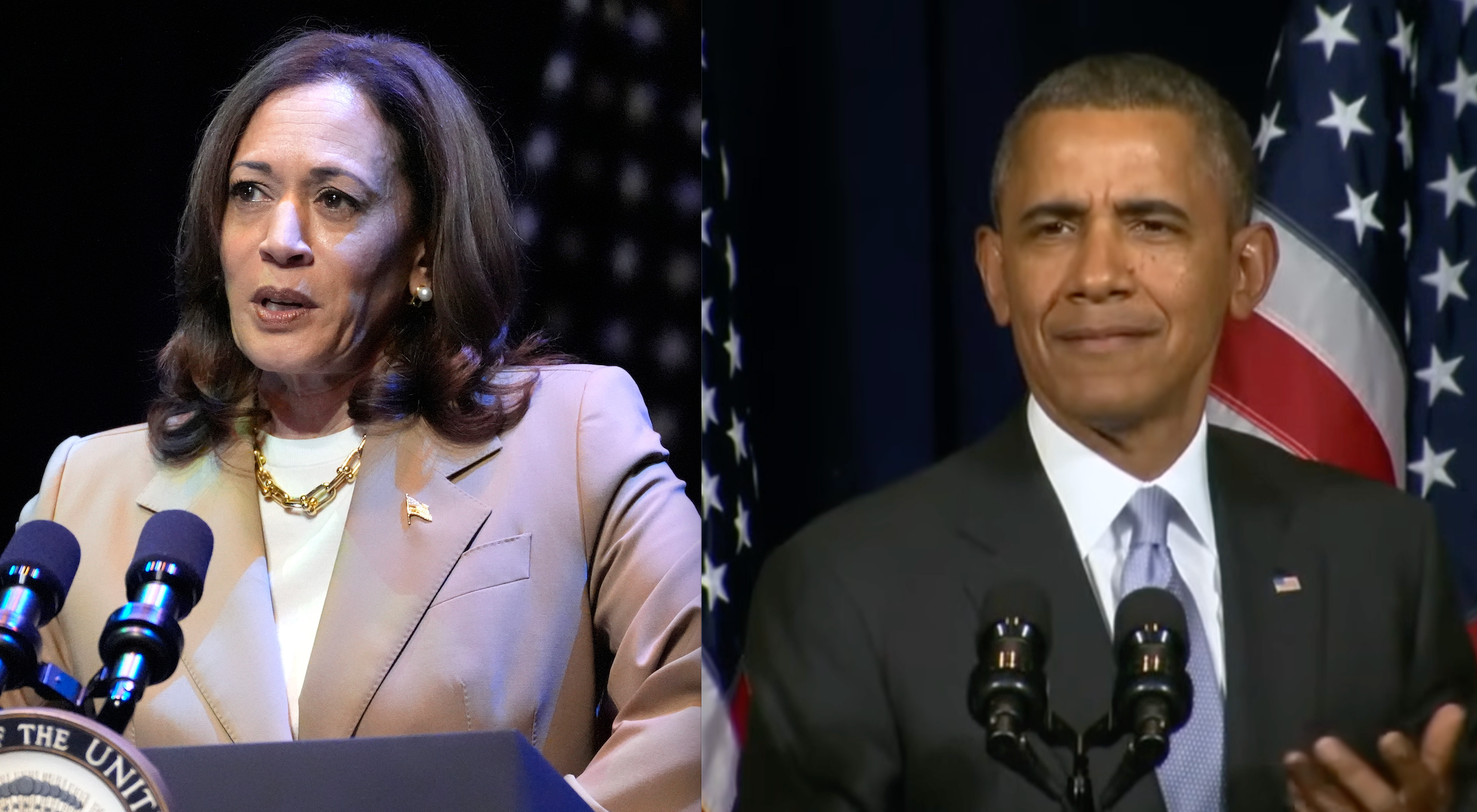In her convention acceptance speech, Democratic presidential nominee Kamala Harris slammed Donald Trump for his diplomatic efforts in his first term.
“I will not cozy up to tyrants and dictators like Kim Jong-un, who are rooting for Trump,” Harris claimed. “Because they know he is easy to manipulate with flattery and favors.”
“They know Trump won’t hold autocrats accountable — because he wants to be an autocrat,” she added.
It was neoconservatism 101.
When Winston Churchill famously said that “To jaw-jaw is always better than to war-war,” he clearly meant that talking was preferable to armed conflict.
Neocons have long held the opposite view: Diplomacy could prevent war, their primary goal, so better to avoid it. A tried and true method in preventing diplomacy is to accuse anyone who wants it of siding with America’s enemies.
Just ask Barack Obama.
In 2015, President Barack Obama met with Russian President Vladimir Putin, something he had done prior and is not unusual for American presidents.
"I'm not sure we would meet with Putin,” insisted 2016 Republican presidential candidate Sen. Marco Rubio. Fellow candidate Jeb Bush said Obama’s decision strengthened Russia. “President Obama’s decision to meet with Vladimir Putin is as misguided as it is unnecessary,” said 2008 GOP nominee Sen. John McCain. “It plays right into Putin’s hands.”
“Ultimately, the proper response to Russia’s actions in Ukraine, the Middle East and elsewhere is not a tete-a-tete with Putin,” McCain added.
Obama = Putin. Got it?
These Republicans were still fully in the neoconservative Bush-Cheney mode that had dominated their party before the rise of Donald Trump.
These Republicans accused Obama, who had campaigned in 2008 as an antiwar Democrat who could move the country past Bush, as being tyrant friendly for his entire two terms.
Obama pushed back on his Republican critics, chiding those who have "a notion of strength that is defined by opposition to old enemies, perceived adversaries."
He added, "We see an argument made that the only strength that matters for the United States is bellicose words and show of military force...that cooperation and diplomacy will not work.”
Trump has said he will meet with Putin to “quickly” end the Ukraine conflict. For Harris, this makes him sympathetic to dictators. Republican hawk Lindsey Graham felt the same way after Trump met with Putin in 2017. “He's hurting his presidency by not embracing the fact that Putin's a bad guy who tried to undercut our democracy and he's doing it all over the world,” Graham said.
When Trump met with the authoritarian leader of nuclear power North Korea, the American president signaled his intention to have weapons talks. Harris, channeling Dick Cheney, said this only meant Trump was “cozying up” to tyrants.
Again this is an old neoconservative trope. When Reagan met with Russian President Mikhail Gorbachev in 1985 to discuss nuclear de-escalation, Newt Gingrich called it “the most dangerous summit for the West since Adolf Hitler met with Neville Chamberlain in 1938 in Munich.”
In fact, the most hawkish Republicans of Reagan’s day absolutely hated him for his diplomacy with Russia — his greatest legacy.
When President Obama visited Cuba in 2015 in the interest of liberalization, his meeting with dictator Raul Castro was blasted by Republicans. Jeb Bush asked, “Why legitimize a cruel dictator of a repressive regime?" Sen. Ted Cruz said, “Obama has chosen to legitimize the corrupt and oppressive Castro regime with his presence on the island.” Marco Rubio said that change would not come to Cuba "by enriching and empowering the dictatorship.”
Rubio added that Obama’s Cuba outreach was "one of the most disgraceful trips ever taken by a U.S. president anywhere in the world."
American presidents meeting with authoritarian leaders hostile to the United States is nothing new. Reagan did it. Obama did it. John F. Kennedy did it. Bill Clinton did it. Even George W. Bush did it, despite Republicans in his camp traditionally being the loudest voices against doing this.
Donald Trump did it too, and Kamala Harris appears to be saying she won’t.
Jaw-jaw is better than war-war, something anyone eyeing the presidency of the United States should have learned by now.
- If there is a Harris foreign policy do we call it Biden-lite? ›
- Kamala & Gaza: All words and no deeds make a divided party ›
- Debate: On Gaza & Ukraine, Harris and Trump put 'America last' | Responsible Statecraft ›
- Why aren't Harris and Trump talking about nuclear weapons? | Responsible Statecraft ›
- Harris embrace of hawks and their values is new. Or is it? | Responsible Statecraft ›
- 'Anti-war' Trump trying to outflank Harris at critical moment | Responsible Statecraft ›
- Ukraine War well beyond who wins Trump-Harris election | Responsible Statecraft ›














